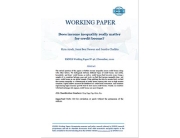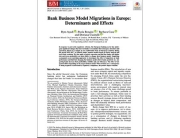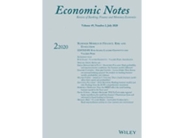Author(s): Rym Ayadi, Emrah Arbak, Sami Ben Naceur, Willem Pieter De Groen
In: Financial Markets, MEDPRO Technical Papers (closed in 2013)
Date: 26 February 2013
Pages: 30
Download PDF
Casual observation shows that that the financial systems in the southern and eastern Mediterranean are unable (or unwilling) to divert the financial resources that are available to them as funding opportunities to private enterprises. Using a sample of northern and southern Mediterranean countries for the years 1985 to 2009, this study empirically assesses the reasons underlying such conditions. The results show that strong legal institutions, good democratic governance and adequate implementation of financial reforms can have a substantial positive impact on financial development only when they are present collectively. Moreover, inflation appears to undermine banking development, but less so when the capital account is open. Government debt growth appears to weaken credit growth, which confirms that public debt ‘crowds out’ private debt. Lastly, capital inflows appear to primarily have an income effect, increasing income and thereby national savings, and thus increasing the availability of credit.
Rym Ayadi is Senior Research Fellow at the Centre for European Policy Studies (CEPS) in Brussels and Coordinator of the MEDPRO project, Emrah Arbak was Researcher at CEPS, Sami Ben Naceur is Associate Professor at the University of Tunis and Willem Pieter De Groen is a Researcher at CEPS.




